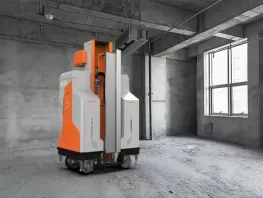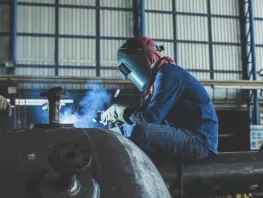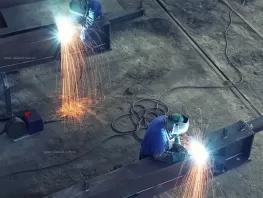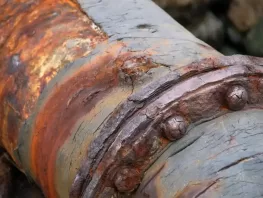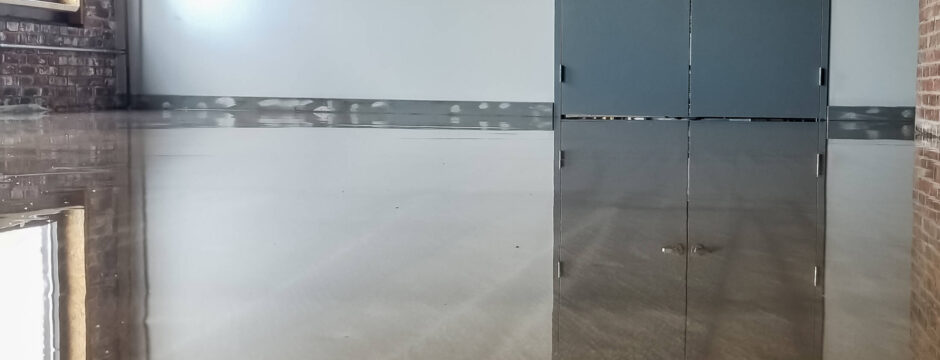
What Are Concrete Floors? A Comprehensive Guide to Concrete Flooring Options
Posted Jul 10, 2023 by Dave Scaturro

Concrete flooring offers incredible versatility, making it a popular choice for a wide range of projects. If you're in the planning stages of your project, it's important to understand the various types of concrete flooring options available. In this guide, we'll delve into the benefits of polished concrete floors and explore other alternatives. When it comes to professional concrete flooring services, Alpine Flooring is a trusted provider with a proven track record.
Epoxy Coated Concrete
Concrete is naturally porous, which means it can absorb chemicals, moisture, and other substances. For spaces that require a surface capable of withstanding heavy loads, stains, chemicals, and other demanding conditions, epoxy coatings are an excellent choice. While they may resemble a coat of paint, epoxy flooring can be customized to meet the specific requirements of your space. For instance, in warehouses where forklifts operate regularly, a durable flooring system is essential to prevent chipping or cracking under pressure. Additionally, epoxy coatings are commonly used in healthcare facilities, food processing plants, fitness centers, and residential garages to provide an attractive surface that can withstand oil spills and other automotive leaks.
When deciding between polished concrete and epoxy flooring, it's important to consider the intended function of the space and the need for a high-performance floor. In most cases, polished concrete is a suitable option, especially when the surface is properly sealed. However, if you prefer the appearance of a concrete floor without an opaque overlay, a clear epoxy coating can be a worthwhile investment. An experienced concrete contractor, Like Alpine Flooring, can assist you in evaluating your options and selecting the flooring system that best suits your project.
Polished Concrete
Polished concrete floors can be found in a variety of settings, including schools, restaurants, distribution centers, and homes. These floors offer a cost-effective alternative to carpeting, vinyl, wood, natural stone, or tile. Moreover, they are sustainable, easy to clean, and resistant to mildew, mold, mites, and common allergens. One of the significant advantages of polished concrete is that it can be applied to existing concrete surfaces in almost any condition, providing a significant upgrade at a fraction of the cost of other flooring materials. After grinding down the top layer of the floor to the desired specifications, you can further enhance the project with overlays, stains, dyes, stencils, or decorative patterns. Alternatively, you can maintain the natural gray color with the desired level of sheen.
Stained Concrete
For those looking to enhance the natural appeal of concrete and bring out rich, translucent tones, stained concrete floors are an excellent option. Unlike epoxy coatings that sit on top of the surface, concrete staining penetrates below the surface, creating a unique appearance. Stains are permanent and do not require reapplication after years of wear and tear. You have the choice between acid and water-based stains, and you can apply multiple colors to achieve the desired look. Additionally, you can use both stains and dyes or create decorative effects with thick stains and stencils. Stained concrete is commonly used in furniture stores, waiting rooms, food halls, and residential patios.
Sealed Concrete
Raw concrete is susceptible to moisture and chemical absorption, as well as imperfections caused by exposure to the elements, improper installation, and excessive weight. Although concrete is a durable material, it requires regular maintenance over time. If you are looking to restore an existing surface or add new flooring, applying a sealer is essential to extend its lifespan. Depending on your requirements, you can choose from various types of sealers, such as penetrating, siloxane, acrylic, polyurethane, clear, or stamped concrete sealers. Sealing can be the final step in a polished concrete or stained concrete project or simply a way to protect your existing floor.
Pros and Cons of Polished Concrete Floors
Before making a decision, it's essential to evaluate the advantages and disadvantages of polished concrete floors. This evaluation is particularly important for general contractors, property managers, business owners, and homeowners who are considering polished concrete or other flooring solutions.
Benefits of Polished Concrete
There are numerous reasons why polished concrete floors have gained popularity. Some key benefits include:
Cost-Effectiveness: By utilizing the existing concrete slab, you eliminate the need to invest in other flooring materials like tile, wood, linoleum, or carpet. Additionally, the durability of polished concrete reduces cleaning, repair, and replacement expenses often associated with other surfaces.
Longevity: Polished concrete is highly resistant to damage. With proper care and maintenance, it can last for at least 20 years or even a lifetime.
Easy Maintenance: Maintaining polished concrete floors is relatively simple. Regular sweeping with a dust mop or broom keeps them free from dirt and debris. Occasional damp mopping removes scuffs, smudges, and watermarks while restoring the surface's gloss. Minimal cleaning time translates to increased productivity in high-traffic facilities.
Versatility: Concrete floors offer limitless design possibilities. You can combine stains, dyes, and decorative elements to create a unique look that aligns with your aesthetic preferences.
Durability: Polished concrete resists chipping and scratching under normal conditions, making it suitable for spaces with heavy equipment and foot traffic. Additionally, coatings can enhance concrete's resilience against various forms of damage.
Slip Resistance: Commercial settings can benefit from non-slip epoxy coatings, which prevent injuries and falls. Other coatings provide protection against chemicals, heat, static, moisture, and contaminants.
Attractiveness: While raw concrete may serve as a blank canvas, polished concrete floors offer superior aesthetics. Reflective surfaces can brighten up your space, potentially reducing utility costs. Whether you prefer a subtle color or an intricate pattern, polished concrete delivers visually appealing results.
Environmentally Friendly: Polished concrete projects often qualify for LEED certification as they require no hazardous coatings, cleaners, or adhesives for protection or maintenance.
Disadvantages of Polished Concrete
While polished concrete is suitable for the majority of flooring projects, certain environments may require specialized surfaces. For instance, facilities with unique and demanding needs might necessitate epoxy flooring or industrial coatings, which may require higher upkeep due to deterioration over time. Although residential applications of epoxy have increased in recent years, commercial facilities like airplane hangars, automotive facilities, commercial kitchens, decks and driveways, garages, laboratories, and pharmaceutical settings are where you more often require these specialized solutions.
In some residential settings, homeowners may find concrete floors less comfortable than other traditional flooring types due to reduced cushioning when standing for extended periods. Additionally, concrete doesn't absorb sound as effectively as certain materials, leading homeowners to incorporate rugs, drapes, or wall panels to minimize noise.
Selecting the Right Concrete Contractor
Given the significant investment and numerous factors to consider, choosing an experienced concrete contractor is crucial in selecting the ideal flooring solution for your space. Alpine Flooring stands as a trusted resource for polished concrete flooring, boasting skilled craftsmen with extensive experience in installing various concrete flooring systems.
Whether for commercial settings or industrial facilities, our expert decorative concrete contractors consistently exceed client expectations. When you work with Alpine, you can expect beautiful, high-quality results delivered on time and within budget.
